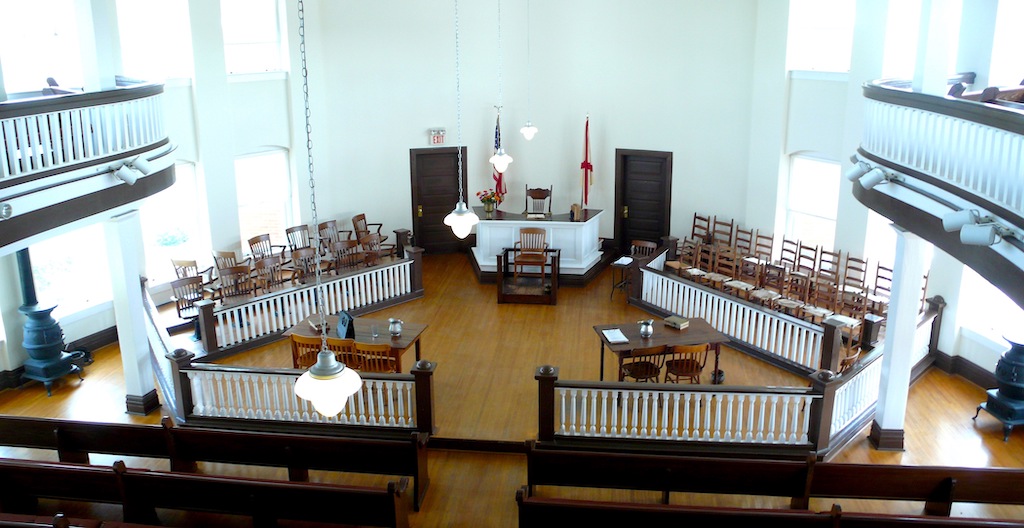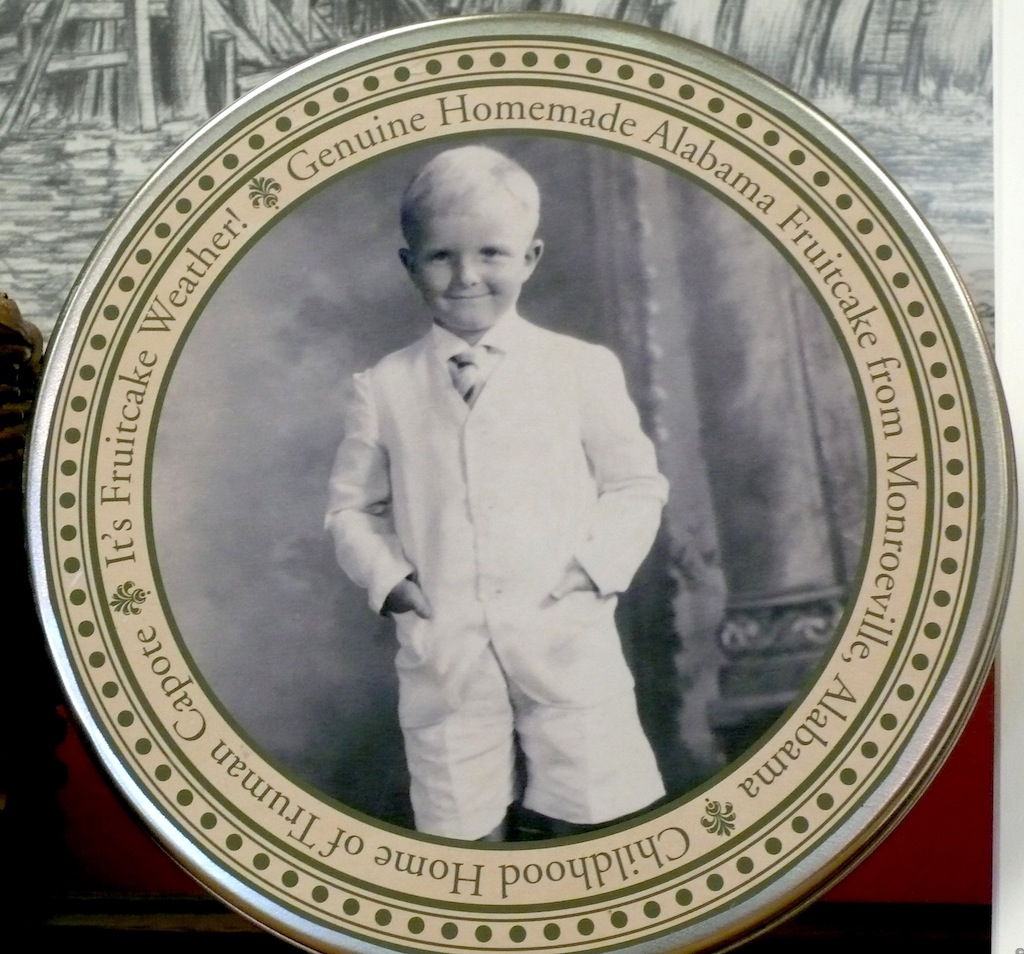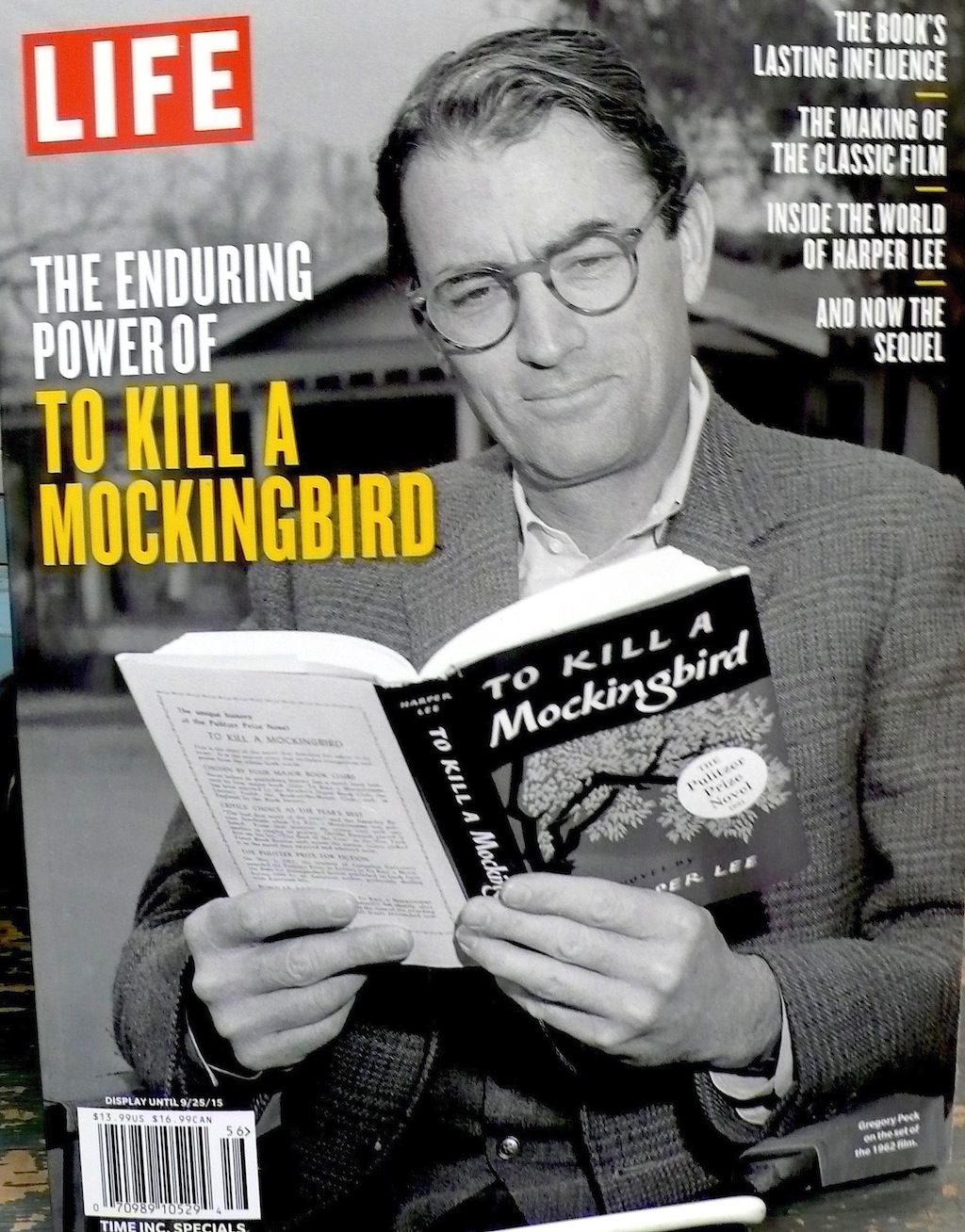Harper Lee’s Hometown Honors ‘To Kill a Mockingbird’ Author
Sitting down on a park bench next to Scout, I peer at the book she is reading. Over her right shoulder is Dill. Over her left is Jem. All the sculptured figures seem engrossed in the pages of “To Kill a Mockingbird.”
Behind us is the stately 1903 courthouse, the model for movie scenes where Scout’s father, lawyer Atticus Finch, fights valiantly to save a black man accused of rape.
After all, this is Monroeville, Alabama, the hometown of Harper Lee, the woman who wrote the classic book. She was born on April 28, 1926, and died on Feb. 12, 2016.
More than half a century after Harper’s only novel was released, a new book was published on July 14, 2015, reportedly written by Harper, “Go Set a Watchman.” The title appeared to be taken from Isaiah 21:6: “For thus hath the Lord said unto me, Go, set a watchman, let him declare what he seeth.”
“People come here because they love ‘To Kill a Mockingbird’ and the sense of place they find in Monroeville,” says Stephanie Rogers, former director of the Monroe County Heritage Museum in the old courthouse. The upstairs courtroom is where Harper’s father, attorney Amasa Lee, tried his cases and where a young Harper watched spellbound from the balcony.
Saved by concerned citizens, the courthouse has displays about Harper and her next-door neighbor Truman Capote. Born in New Orleans and shuttled among relatives, Truman lived with his aunts in Monroeville as a youngster.
Childhood friend recalls real people in book
“Truman Capote was a precocious young boy,” says George Jones, a childhood friend of Harper and Truman. “Even before he started school, Truman could read.”
In Monroeville, Harper was known as Nelle. “That’s what people still call her here,” George says, adding that Harper dropped her first name as book author because she didn’t want people to mispronounce it and call her “Nellie.” Nelle is a reverse spelling of Harper’s grandmother’s name, Ellen.
Truman was the inspiration for the Mockingbird character of Dill with his snow-white hair “that stuck to his head like duck fluff.” Having watched the talented Truman self-destruct over the years into a drug-and-drink addled clown, I was surprised to hear George say that the young Truman was quite athletic.
Kids often picked on Truman because he was “a runt and a smart aleck,” George says. “He wouldn’t fight … He would jump up on the stone wall (still standing by Mel’s Dairy Dream where his aunts’ house once stood) and walk it on his hands.”
Then Truman would challenge the bullying boys to see if they could do that. They couldn’t and the matter was usually dropped.
Harper, on the other hand, was a tomboy and not above punching boys or kicking their shins. “She put three fifth-grade boys on the ground,” George says, recalling a day when older boys were hassling the third-grade Harper while she was playing dodge ball.
As unbelievable as it sounds, George says the character of Mockingbird’s Boo Radley (played in his movie debut by actor Robert Duval) was based on a real Monroeville teen who spent his life locked up by his father.
Seems the boy, Alfred “Son” Boulware and two other boys stole cigarettes from a local market. When Son was sentenced to a year in reform school, his father implored the judge to release the teen into his care, promising the boy would never get in trouble again.
To ensure that he didn’t, the father kept his son imprisoned at home where the boy grew old and became a legendary ghostly figure. If a ball went into the Boulware yard, George says, “we would draw straws for who had to go get it because there was a crazy man in there.”
Townspeople were surprised, George says, when Harper went off to New York and wrote her Pulitzer Prize-winning novel. The 1962 film adaption won three Academy Awards, including best actor for Gregory Peck as Atticus Finch.
- The 1903 courthouse where Harper Lee’s father tried cases.
- A young Harper watched her father try cases from this balcony.
- A visitor reads Harper Lee’s novel in her hometown.
- Harper Lee smiles before receiving the 2007 Presidential Medal of Freedom at the White House in Washington, D.C.
- Young Truman Capote.
- Actor Gregory Peck won an Oscar for his movie portrayal of Atticus Finch.
Controversy surrounds second book
The second book was a sequel or prequel – depending on how you look at it – of “To Kill a Mockingbird.” “Go Set a Watchman” centers around Scout’s life 20 years after Mockingbird when she returns to Maycomb, based on Monroeville, to visit her father.
The new book reportedly was written first but was “lost” after Harper’s editor said the real story was the one told by Atticus’ tomboy daughter Scout who narrates the tale as she ages from six to eight. The lost pages were said to be found by Harper’s lawyer, Tonja Carter, lumped together with Harper’s original manuscript.
After a stroke in 2007, Harper moved from New York City back to Monroeville to live with her sister. Before her death on Nov. 17, 2014, Harper’s older sister Alice Lee always protected her younger sibling and took care of Harper’s legal matters.
Harper called her attorney sister “Atticus in a skirt.” After the success of Mockingbird and the public clamor for more, Harper famously answered that “I have said what I wanted to say and I will not say it again.”
Although some questioned the timing and accuracy of the “find” as well as Harper’s agreement to publish it shortly before her death, Watchman was a best seller. When attorney Tonja said Harper had given her permission to publish the book, the 89-year-old author was blind, deaf and in a wheelchair in an assisted living facility in Monroeville.
Despite fans saying that Harper is the basis for young Scout in the book, George notes that she was more like Boo Radley. Notoriously private and detesting publicity, Harper reportedly gave her last formal interview in 1964. After that, interview requests were usually met with a blunt reply – “No. Hell no.”
Before I left Monroeville, I bought a copy of “Go Tell a Watchman.” When I got home and read it, I reread the original to try and forget the new book.
I prefer to remember Harper Lee in the last book she said she would write, “To Kill a Mockingbird.” The last book I think she did choose to publish.
That is the best way, I felt, to honor Atticus and the Mockingbird children created by such a talented writer.
For more information: Contact the Monroe County Museum at 251-575-7433, or Alabama Tourism at 334-242-4169, www.Alabama.travel.
Photos by Jackie Sheckler Finch
Photo cutlines
- Statues of the ‘To Kill a Mockingbird’ children are a popular photo spot. (Cover photo)
- The 1903 courthouse where Harper Lee’s father tried cases.
- A young Harper watched her father try cases from this balcony.
- A visitor reads Harper Lee’s novel in her hometown.
- Harper Lee died in her hometown on Feb. 12, 2016.
- Young Truman Capote.
- Actor Gregory Peck won an Oscar for his movie portrayal of Atticus Finch.
Ed. Note: Please contact us for more information and to book a cruise! Crown Cruise Vacations | Cruise Getaways You Can Afford!





















View Recent Comments